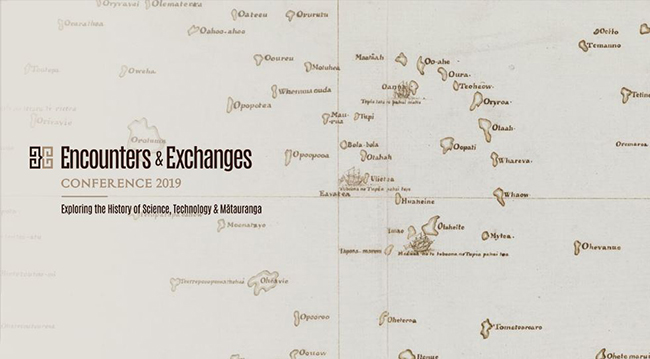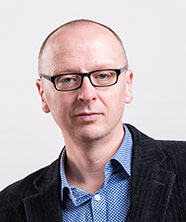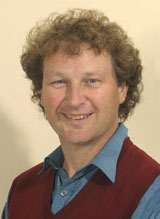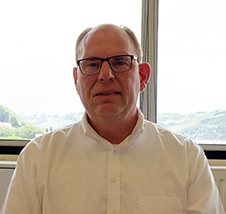Monday 18 November 2019 2:44pm

The University of Otago’s Encounters and Exchanges Conference, to be held in Blenheim between 1 and 3 December, will explore the enduring impact on understandings of the world that resulted from James Cook’s Pacific voyages and interactions with indigenous people.
The Blenheim-based, community-oriented conference is part of the Tuia – Encounters 250 national commemoration, and will feature contributions by leading scholars, and several free public events.
In keeping with Tuia 250 themes around voyaging traditions, the conference programme will examine the concept of ‘knowledge in transit’ and how science, technology, and indigenous knowledge – involving people, instruments, tools, communications, values, and epistemology – travel from one region to another and are transformed, reworked or contested.
A central theme will be how this interaction changed both Pacific and European peoples’ knowledge-base, and global understandings of science, technology and medicine.

Professor Tony Ballantyne
Division of Humanities Pro-Vice-Chancellor Professor Tony Ballantyne says Otago coordinated the conference because “the debates around James Cook provide an opportunity to reflect on the history of knowledge in various forms.”
“A group of the University’s researchers share an interest in the history of science and, in particular, the place of knowledge in those critical moments when human communities meet for the first time. Reflecting on the legacy of those first interactions poses a range of vital questions about knowledge, how it is generated, how it is communicated and translated, and how it is entangled with power,” he says.
Professor Ballantyne hopes the conference will help academics, and the public, discuss a range of perspectives on Cook’s Pacific voyages, on the meaning and consequences of empire, on the development and transformation of science, and on the importance and vitality of mātauranga Māori (Māori knowledge).

Professor Hamish Spencer
This event aligns with the work of one of the Conference’s key sponsors, Otago’s Centre for Research on Colonial Culture (CROCC), which is committed to exploring the histories and empire, colonisation and their enduring impacts.
“In organising this conference we wanted to gain insights into a key question about knowledge: what happens when people with different ways of understanding the world meet? In the New Zealand setting it is important to constantly ask ‘what are our knowledge traditions? How do they co-exist and interact? How do they change over time?’
“Tackling these big questions can be done using a range of themes and from various perspectives, by scholars from different disciplines, and by people from a range of locations. We are fortunate to be able to have an incredibly rich programme that features poets and oceanographers, historians and zoologists, experts on Māori and Pacific knowledge traditions and artists.”
Otago is proudly co-hosting the event with local iwi, which Professor Ballantyne says has already been “incredibly enriching.”
“Local iwi underscore the importance of place, history, and identity. Conversations with them give added dimensions to questions connected to knowledge and science by showing these aren’t some distant, abstract issues – they are vital, contemporary issues that tie in with the health, wellbeing and sustainability of our contemporary communities.”

Associate Professor Hugh Slotten
Organisers hope the public and guests leave the conference with new knowledge, and having taken part in a range of open and engaging conversations.
“Exchanges and Encounters is aimed at getting all to share their expertise, as well as hearing the perspectives of others working in a range of locations and scholarly and cultural traditions.”
University of Otago conference organisers – Professor Hamish Spencer (Department of Zoology), Associate Professor Hugh Slotten (Media, Film and Communication) and Professor Ballantyne – are thrilled to hold the event at one of the key locations involved in the Tuia 250 programme, and have been delighted to work closely with the Tōtaranui 250 Trust in Marlborough and local iwi.
“We wanted to hold the gathering on the ground at a relevant and important site, work closely with local communities, and have a strong public-facing programme as well as great academic panels,” Professor Ballantyne says.
The University of Otago received an $112,000 grant from the Lottery Tuia – Encounters 250 Programme to support the event. Click here for the full programme.
Notable participants include:
• Naomi Oreskes, Professor of the History of Science at Harvard University
• Jane Lydon, Wesfarmers Chair in Australian History at the University of Western Australia
• Peter Moore, author of Endeavour: The Ship and the Attitude that Changed the World (2018 book of the year by the Sunday Times)
• New Zealand filmmaker Lala Rolls, who will present her feature-length documentary film Tupaia's Endeavour
• Damon Salesa, Pro-Vice-Chancellor, Pacific at the University of Auckland
• Matariki Williams, Curator Mātauranga Māori, Museum of New Zealand Te Papa Tongarewa
• Ian Wedde, former Poet Laureate of New Zealand,
A full programme is available at: https://www.otago.ac.nz/encounters-exchanges/programme-and-speakers/index.html
The public are invited to attend:
Sunday 1 December, 6:30-9:30pm: Screening of Tupaia Film and Panel discussion with filmmaker and actors: ASB Main Auditorium.
Monday 2 December, 12:30-1:30pm: Guest speaker: Peter Moore, “Melodious Wild Musick: Endeavour and Aotearoa”: ASB Main Auditorium
Monday 2 December, 7:15-8:30pm: Panel Discussion: “1769 – Meaning & Consequences”. Damon Salesa, Matariki Williams and Waihaere Mason, Chair: Kim Hill (Radio New Zealand National)
Venue: ASB Main Auditorium
Tuesday 3 December, 12:30-1:30: Guest Speaker: Ian Wedde "‘The Thing We Hold Up Between Us’: acknowledging the relationships between fiction, family storytelling, and what tends to get immunised as the ‘historical record’." ASB Main Auditorium.
